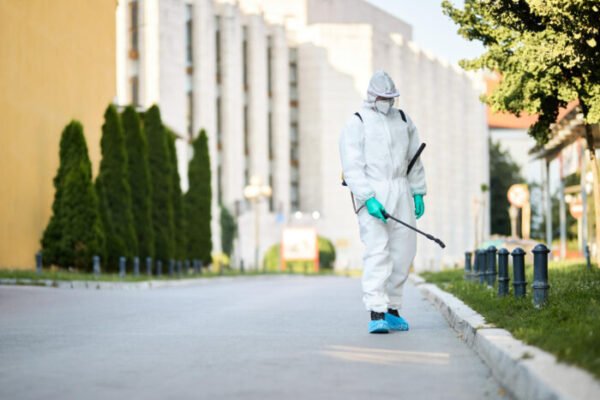Expert Termite Pest Control from Local Pest Control Services in My Area
Termites can cause serious damage to your home, often without you even knowing until it’s too late. Understanding how to manage these pests with expert termite pest control is crucial. In this article, we will explore how local pest control in your area services can help protect your home from these destructive insects. By delving into the nature of termites and their impact, along with the benefits of using local services, we aim to equip you with the knowledge necessary to safeguard your property.
Understanding Termites and Their Impact
Termites are small insects that feed on wood, and they can be highly destructive to homes and buildings. They operate silently and often go unnoticed until significant damage has occurred. Understanding the behavior and signs of termite infestations can help you take action before serious harm is done. Educating yourself about these pests is the first step in protecting your home. Knowing what attracts termites and how they propagate can significantly enhance your ability to prevent and manage infestations.
Types of Termites
There are three primary types of termites: subterranean, drywood, and dampwood. Each type has unique characteristics and requires different approaches for control. Identifying the type of termite is essential in determining the most effective treatment plan.
- Subterranean Termites: These termites live in soil and build tunnels to access above-ground food sources. They are the most common and destructive type. Subterranean termites are notorious for their ability to destroy wooden structures rapidly, often requiring specialized treatment methods to eliminate.
- Drywood Termites: These do not require contact with soil and can infest dry wood and wooden structures. They are often found in furniture and can be more challenging to detect due to their tendency to live within the wood itself.
- Dampwood Termites: Preferring moist wood, these termites are less common and usually found in areas with high humidity. They are generally less of a threat to homes unless there is significant moisture present that attracts them.
Signs of Termite Infestation
Detecting termites early can save you from expensive repairs. Look out for these signs:
- Hollow-sounding wood
- Mud tubes on exterior walls or in crawl spaces
- Discarded wings near windows or doors
- Frass (termite droppings) resembling sawdust
Recognizing these indicators early can mean the difference between a minor issue and a major repair job. Regularly inspecting your property for these signs can provide early warnings and allow for prompt intervention. Being proactive in seeking out these signs can also deter termites from settling in the first place, as early detection is a key component in effective pest management.
Why Choose Local Pest Control Companies?
Choosing local pest control services in your area offers several advantages over larger, national chains. Local companies often provide more personalized service and have a better understanding of the regional pest issues. They are typically more invested in the community, which can translate to higher accountability and a commitment to quality service.
Personalized Service
Local pest control companies can offer a more tailored approach to your specific pest problem. They know the local termite species and their behaviors, which can lead to more effective treatment plans. By understanding regional pest patterns, local providers can deliver solutions that are specifically designed for the unique challenges faced in your area.
Moreover, local experts often take the time to educate homeowners about termites and provide ongoing support and advice. This personalized attention ensures that you not only address the current problem but also implement strategies to prevent future infestations.
Quick Response Times
Being located nearby means local pest control services can respond quickly to your calls. Fast intervention can be critical in managing and minimizing termite damage. A swift response not only addresses the immediate concern but also prevents further damage, ultimately saving you money in repair costs.
In addition to rapid response times, local companies often offer flexible scheduling to accommodate homeowners. This flexibility ensures that inspections and treatments can be conducted at your convenience, reducing disruption to your daily routine.
Community Reputation
Local businesses often rely on their reputation within the community, which can mean they are more committed to providing high-quality service. Look for reviews and testimonials from neighbors to gauge the reliability of a local provider. A strong community reputation often signifies consistent, reliable service and a commitment to customer satisfaction.
Additionally, local pest control services are likely to contribute positively to the community, participating in local events and supporting neighborhood initiatives. This community involvement can be an indicator of their dedication to maintaining a strong, positive presence in the area.
The Process of Termite Inspection
A professional termite inspection is the first step in controlling an infestation. Here’s what you can expect from a termite inspection near you:
Initial Consultation
During the initial consultation, a termite expert will gather information about your home and any signs of termites you might have noticed. They will schedule a thorough inspection based on your availability. This phase is crucial for setting expectations and understanding your specific concerns, which can guide the inspection process.
The consultation also provides an opportunity for homeowners to ask questions and express any worries they may have about the inspection and treatment process. This open communication helps establish trust and ensures that both parties are aligned in their approach to addressing the infestation.
Thorough Examination
The inspection will involve a detailed examination of both the interior and exterior of your home. The inspector will look for signs of termites and assess the extent of any damage. This comprehensive assessment is essential for determining the best course of action to eliminate the termites.
Inspectors may use specialized tools and techniques to detect termites that are not visible to the naked eye. Their expertise allows them to identify subtle signs of infestation that untrained individuals might overlook, ensuring a more accurate diagnosis of the problem.
Report and Recommendations
After the inspection, you’ll receive a report detailing the findings, including areas affected and recommended treatment options. The report may also suggest preventive measures to protect your home in the future. This documentation serves as a roadmap for addressing the issue and preventing future infestations.
The recommendations provided are tailored to the specific conditions of your home, taking into account factors such as the type of termites present and the extent of the infestation. Implementing these suggestions can significantly reduce the risk of future termite problems.
Effective Termite Pest Control Solutions
Once termites are detected, implementing the right termite pest control strategies is essential. Here are some common methods used by pest control companies:
Chemical Treatments
Chemical treatments involve applying termiticides to the soil around your home or directly onto infested areas. These chemicals create a barrier that termites cannot cross. This method is often used in conjunction with other strategies to provide comprehensive protection against termites.
The effectiveness of chemical treatments depends on proper application, which is why it’s crucial to rely on professional pest control services. Experts ensure that the right chemicals are used in the appropriate concentrations, maximizing their efficacy while minimizing potential harm to the environment.
Baiting Systems
Baiting systems involve placing bait stations around your property. Termites consume the bait and take it back to their colony, eventually eradicating the entire colony. This method is highly effective because it targets the source of the infestation rather than just the visible termites.
Baiting systems are often preferred for their minimal environmental impact and ability to eliminate entire termite colonies over time. They also provide ongoing protection, as the bait stations can be monitored and replenished as needed to prevent new infestations.
Fumigation
For severe infestations, fumigation might be necessary. This involves sealing the home and releasing a gas that permeates all areas, effectively killing termites throughout the structure. Fumigation is often considered a last resort due to its invasive nature but can be the most effective solution for widespread infestations.
While fumigation is highly effective, it requires thorough preparation and post-treatment procedures to ensure safety and effectiveness. Professional pest control services manage the entire process, ensuring compliance with safety regulations and minimizing risks to homeowners and their properties.
Physical Barriers
Incorporating physical barriers like stainless steel mesh or sand barriers during construction can prevent termites from entering the building. These barriers can be an effective part of a long-term termite prevention strategy, especially in areas prone to infestations.
Physical barriers are particularly useful for new constructions, providing a proactive measure to deter termites from ever gaining a foothold. When combined with other preventive strategies, they offer a robust defense against termite invasions.
Preventive Measures Against Termites
Prevention is always better than cure. Here are some preventive measures to protect your home from termites:
Regular Inspections
Scheduling regular termite inspections can help catch infestations early before they cause significant damage. Routine checks are an essential part of any effective termite management plan, allowing for early detection and intervention.
Regular inspections not only help identify current infestations but also assess potential risks, providing an opportunity to address vulnerabilities before they attract termites. By maintaining a consistent inspection schedule, homeowners can stay ahead of potential problems.
Moisture Control
Since termites are attracted to moisture, repairing leaks and ensuring proper drainage can reduce the risk of infestation. Moisture control is a critical aspect of termite prevention, as damp conditions are a significant draw for these pests.
Addressing moisture issues requires a comprehensive approach, including regular maintenance of plumbing systems, roof repairs, and proper landscaping techniques to direct water away from the home’s foundation. By controlling moisture, you significantly reduce the likelihood of attracting termites.
Wood Maintenance
Keep firewood and other wood piles away from your home. Use treated wood for any structures that are in contact with the ground. Proper wood maintenance is an effective deterrent against termites, as it eliminates one of their primary food sources.
Additionally, regular inspections of wooden structures for signs of damage or decay can help identify potential termite activity early on. By maintaining the integrity of wood around your property, you create an environment that is less appealing to termites.
Landscaping
Maintain a gap between soil and any wooden parts of your home, and avoid planting trees or shrubs too close to the house. Proper landscaping practices can significantly reduce the risk of termite infestations by eliminating easy access to your home’s foundation.
Choosing plants that are less likely to attract termites and keeping vegetation well-trimmed and away from the house are simple yet effective strategies. These measures, combined with other preventive efforts, create a comprehensive barrier against termites.
Choosing the Right Pest Control Company
When selecting a pest control company, consider the following factors:
Licensing and Certification
Ensure the company is licensed and certified to perform termite control in your area. This guarantees they meet local regulations and standards. Working with a licensed company provides peace of mind, knowing that the service you receive is both legal and professional.
Licensing also indicates that the company stays updated with the latest industry practices and technologies, ensuring you benefit from the most current and effective pest control solutions available.
Experience and Expertise
Look for companies with experience in dealing with termite infestations. Experienced professionals are more likely to provide effective solutions. Their expertise allows them to handle a wide range of scenarios, ensuring that they can address your specific needs.
An experienced pest control company will also have a proven track record of success, which can be verified through customer testimonials and case studies. This background offers assurance that they can effectively manage your termite problem.
Customer Reviews
Read customer reviews and testimonials to gauge the effectiveness and reliability of the company. Reviews can provide valuable insights into the quality of service, professionalism, and customer satisfaction levels.
By evaluating customer feedback, you can make an informed decision about which pest control company to choose. Positive reviews often indicate consistent service quality, while negative reviews can highlight potential areas of concern.
Warranty and Follow-Up
A reputable company will offer a warranty on their work and provide follow-up inspections to ensure the problem is resolved. A warranty demonstrates confidence in their services and provides additional security for homeowners.
Follow-up inspections are crucial for verifying the success of the treatment and ensuring that no termites remain. This ongoing support is a key component of an effective pest management plan, offering continued protection and peace of mind.
Conclusion
Dealing with termites requires expertise and quick action. Choosing a local pest control service can provide the personalized attention and rapid response needed to protect your home. Regular inspections and preventive measures are key to keeping termites at bay. Don’t wait until it’s too late—act now to safeguard your property from these destructive pests. By taking proactive steps and partnering with a trusted local provider, you can ensure your home remains termite-free for years to come.






